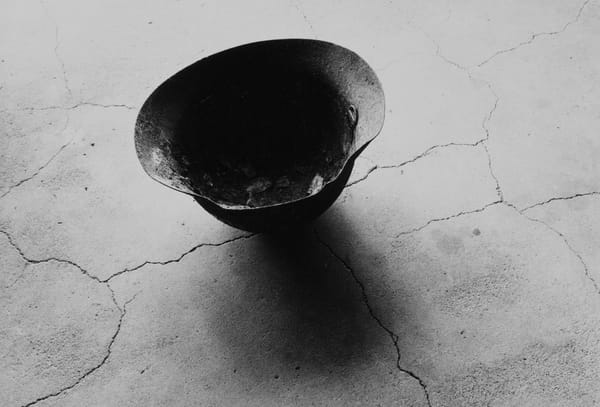Taking on the Classics: A Director's How-To
Fred Fyles chats with Jeff James about theatre, traditions, and treacle
How do you go about reinventing the wheel? This was the question facing Jeff James when he decided to take on Sophocles’ classic piece of drama Philoctetes; directing and writing the adaptation himself, James has shaped the play into something new, renaming it Stink Foot after Philoctetes’ main feature: his rotting, stinking foot. It was this foot that led to him being abandoned on the island of Lemnos for ten years, until it is prophesied that he is needed back in Troy in order for the Greeks to win the war; it is up to young Neoptolemus to convince him to return, using every ounce of skill and cunning in his mind. It’s a heavy mantle to take on, and so we sat down with James for a chat about the challenges of adapting Greek drama, the relevance of the play to modern life, and the dangers of using gallons of treacle on stage.
So firstly, when did James become aware of the play? ‘I’d read Sophocles at university, and thought that this play was very interesting, funny, and profound – I kept coming back to it, but thought it was too difficult’, says James; eventually it was a friend who pushed him to produce the play, saying ‘if that’s the play that’s obsessing you, then you should go for it’. And taking on Sophocles as his first adaptation, was that always the plan? “No, initially I didn’t know I would write it,” admits James, “but there were things that I could feel in the play, and wanted to express”. After a period of deliberation – “one scenario was to employ a writer, and adapt it in collaboration” – James ultimately felt that by writing the adaptation himself it would be “easier to get these ideas across”.
Luckily he wasn’t alone in the endeavour; he has enlisted the help of designer Alex Lowde, with whom he worked in a Young Vic workshop the previous year. Together they came up with an ingenious staging device: treacle. 250 kg of the stuff, which oozes out of the sores on Philoctetes’ leg, eventually covering the pristine stage. “The treacle idea actually came really early on in the process”, says James, “a nasty black pool is an interesting way of representing Philoctetes’ foot, which is supposed to be the most horrible foot in the world.” But the treacle takes on a more symbolic role too: “the play is about morality; Neo is employed to trick Philoctetes, who is essentially a lonely disabled man. He starts off by saying that he isn’t the kind of person to trick people, but it’s a question of ethical compromise”. As James puts it succinctly: “in the end everyone is just lost in this shit”.
Like many things in the theatre (pyrotechnics, children, live animals), working with treacle can pose a unique set of challenges for the actors. These can be both physical – ‘the actors would slip everywhere... the treacle pulled out body hair’ – and mental – James mentions that “it was interesting to see how a person’s acting style can change as they become covered with the treacle.” The presence of the treacle means that it’s a fine balance (literally) between the actor’s intentions and their physical limitations.
This isn’t the first time James has turned his attention to classic theatre, having previously directed plays by Anton Chekhov and Harold Pinter, but he admits that he is “a bit bewildered by the distinction between new writing and classic texts in the British theatre industry”. He follows the maxim of George Devine, one of the founders of the Royal Court’s resident company, who said “treat new plays like classics, and classics like new plays”, but admits that it can sometimes be easier to access the classic texts: “these classic plays exist, and it is easier to access them than to access the very best new writing, which often goes straight to the Royal Court”.
But are these plays still relevant to the modern age? “Yeah, I think these classic plays still explore modern ideas”, says James, who explored the link between Sophocles and urban life in his article The Desert Island and the City. “The desert island never becomes a home – even after years there, the castaway still wants to return home”, he writes, “we are unable to get used to the strangeness of living alongside so many other people, but the only thing worse would be to live alone”. Alongside this theme of alienation and ethical compromise, the play also explores “the difficulty of having a body; the materiality of it”, as expressed through the ever-present, stinking foot of Philoctetes.
It can be difficult to adapt any classic text, and James is aware of the possible pitfalls: “when you adapt well known texts people can get quite upset if they come to see it and don’t recognise the play exactly as they know it”. But taking on Sophocles comes with its own challenges: “the form of the play is so strange”, explains James, “Sophocles had so many radical ideas about the theatre, and it’s so exciting that he engages with the form at that level... but every other line in the play is a reference to a classic story or figure, the kind that would be relevant to Greek audiences”.
So what is his solution to this problem, which can lead to the ‘play resisting you’? “I tried to cut out all the references”, says James, “except the ones where we could show the audience exactly what we meant”.
Ultimately any form of adaptation is daunting, and James has set his sights high by starting with one of the founding fathers of the theatre, but during our conversation his energy and passion for the project is evident. Does he hope that this will encourage a new generation to explore Greek theatre? Perhaps. “It’s not a question of accessibility, more about communicating the things that I really want to get across. But if people get into Sophocles because of this, that would be amazing.”
Stink Foot runs at The Yard Theatre until 2nd December. Tickets are £12.50 adults, £10.00 concessions










